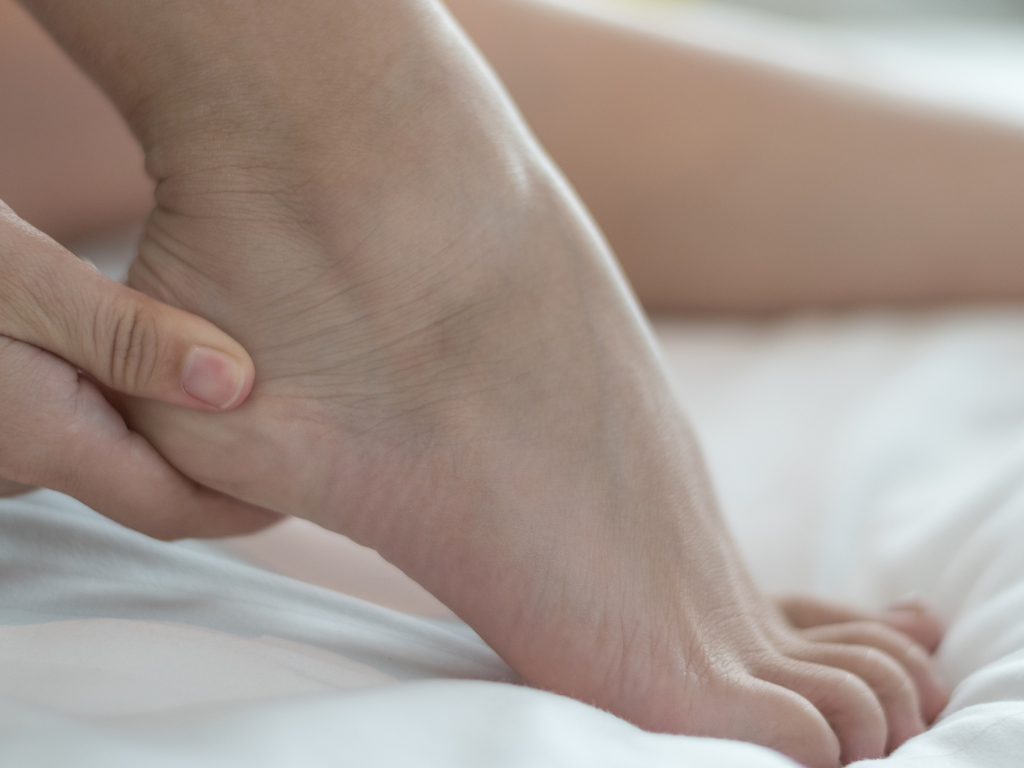Sever’s Disease (Calcaneal Apophysitis)
This injury commonly causes pain and sometimes swelling in the heel, and often occurs in children who engage in high impact sports and activities which involve running or jumping.
Rachel Miller is a highly experienced podiatrist who treats many children and adolescents for Sever’s disease. Please see below if you want more detailed explanation of Sever’s disease, its symptoms, causes and its treatment.
Call 020 8348 5553 to make an appointment
Sever’s Disease
Symptoms of Sever’s disease
Sever’s disease usually causes pain or tenderness in one or both heels.
Other symptoms can include:
- swelling in the heel
- redness in the heel
- stiffness worse on waking
- limping or walking on tip toes
Causes of Sever’s disease
Sever’s disease happens during the growth spurt of puberty, usually between 9 – 14 yrs old, as the bones, muscles and tendons grow at different rates. The muscles and tendons can become tight, pulling on the growth plate in the heel.
It can occur in children who are active in sports or activities that involve running or jumping, especially on hard surfaces. Overuse and repeated stress on the heel, caused by the recurring pulling by the tendon on the heel bone, causes inflammation of the growing part (called the growth plate) of the heel bone. This injury leads to the pain of Sever’s disease.
Treatment of Sever’s disease
With proper management, Sever’s disease usually goes away within a few months and doesn’t cause lasting problems. That might mean a change of exercise regime.
Other treatment can include:
- stretching exercises
- ice packs
- footwear advice
- orthotic insole
A biomechanical assessment from an experienced podiatist can help diagnose Sever’s disease and provide an appropriate treatment plan. During a biomechanical assessment advice, such as suitable footwear and stretching exercises, may be given. A bespoke orthotic insole can also be prescribed as part of the treatment plan. An orthotic may aid healing during rehabilitation, reduce pain and help facilitate normal function.
Contact the Centre for an appointment on 020 8348 5553
Rachel Miller is a highly experienced podiatrist who sees many children for a variety of conditions at her clinic Highgate Podiatry in Highgate Village, 14 Pond Square, N6 6BA, London. Clinics are held every Sunday, Wednesday and Thursday. Please contact the clinic for an appointment on 020 8348 5553. For the clinic’s address, map and directions see the Contact page and for information about orthotic insoles and biomechanics see the Biomechanics page.
Conditions that can benefit from a biomechanical assessment include:
- Heel pain
- Ankle injuries
- Metatarsalgia
- Sports injuries
- Bunions
- Plantar fasciitis
- Hypermobility
- Flat feet
- High arches
- Achilles tendinopathy
- Overuse injuries
- Knee pain
- Back pain
- Sprained ankles
- Stress fractures
- Tarsal tunnel syndrome
- Morton’s neuroma
- Heel pad syndrome
- Haglund’s deformity
- Hammer toe and mallet toe
- Sever’s disease
- Patellofemoral pain syndrome
- Patella tendinopathy
- Osgood-Schlatter disease






